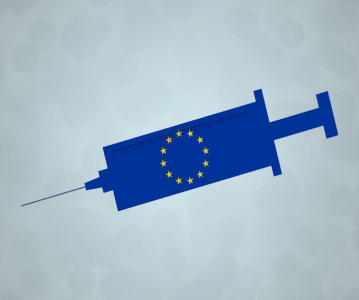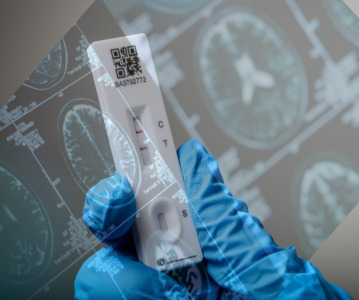SenzaGen granted its first patent for GARD potency biomarker test
Company can now offer an animal-free test method to quantify the strength of an allergenic effect.
SenzaGen's patent application to protect a biomarker signature that measures how strongly allergenic a substance is has now been granted in Europe. The patent is SenzaGen's first patent in the area of potency classification. The patent's validity extends to 2036.
The technology of SenzaGen's patent is implemented in the company's testing application, which for the first time makes it possible to measure the allergenicity of chemical substances, so-called potency classification, without animal research.
“Getting this patent approved for the European market is commercially interesting, as there is a ban within the EU on the sale of animal-tested cosmetic products. Furthermore, to quantify how strong the allergenic effect is according to CLP/GHS is a requirement in the EU chemical regulation REACH. As the only company in the world, SenzaGen can now offer an animal-free test method for this”, says Anki Malmborg Hager, CEO of SenzaGen.
SenzaGen’s IP strategy is to protect the company’s technology in all geographically important markets. Already granted in Europe, China and Hong Kong, patent applications for GARD skin are currently being processed by the patent authorities in countries where animal testing is prohibited or where a ban is expected to be introduced, including the US, Canada and India. In addition, the patent portfolio includes several ongoing patent applications for GARD potency and other GARD products.
SenzaGen’s GARD product portfolio consists of a set of allergy tests with industry-leading performance and accuracy. The tests are performed on human cells in test tubes (in vitro) in combination with artificial intelligence, and replace animal experiments for the cosmetics, chemical and pharmaceutical industries for their tests on whether chemical substances in products can be allergenic.
Related News
-
News Patients vs Pharma – who will the Inflation Reduction Act affect the most?
The Inflation Reduction Act brought in by the Biden administration in 2022 aims to give better and more equitable access to healthcare in the USA. However, pharma companies are now concerned about the other potential costs of such legislation. -
News CPHI Podcast Series: What does the changing US Pharma market mean for industry and patients alike?
In this week's episode of the CPHI Podcast Series Lucy Chard, Digital Editor for CPHI Online is joined by James Manser to discuss the political and market changes in the US pharma field. -
News CPHI Barcelona Annual Report illuminates industry trends for 2024
The CPHI Annual Survey comes into it’s 7th year to report on the predicted trends for 2024. Over 250 pharma executives were asked 35 questions, with their answers informing the industry landscape for the next year, spanning all major pharma marke... -
News Which 10 drugs are open to price negotiation with Medicare in the USA?
The Centres for Medicare & Medicaid Services, under the Biden administration in the USA, has released a list of the 10 drugs that will be open to price negotiations as part of the new legislation under the Inflation Reduction Act (IRA). -
News EU Medical Devices Regulation causes unintended disappearances of medical devices for children, doctors state
Doctor groups and associations have appealed to the EU to correct the EU Medical Devices Regulation law that may cause unintended shortages of essential drug and medical devices for children and rare disease patients. -
News 10 Major Drug Approvals So Far in 2023
Last year, 37 novel drugs were approved by the FDA, this was a high number for such a category, and covered many fields including oncology, demonstrating how promising further research is, and how it is only continuing to build. To date, there are alre... -
News Detecting Alzheimer's disease with a simple lateral flow test
A novel rapid diagnostic test for early-stage Alzheimer's disease has been developed using a biomarker binder from Aptamer Group along with technology from Neuro-Bio, the neurodegenerative disease experts. -
News CPHI Podcast Series: outsourcing and manufacturing trends
Listen to the CPHI Podcast Series this June to hear Gil Roth of the PBOA speak with Digital Editor Lucy Chard about the biggest trends and topics to watch in pharma outsourcing and manufacturing at the minute.
Position your company at the heart of the global Pharma industry with a CPHI Online membership
-
Your products and solutions visible to thousands of visitors within the largest Pharma marketplace
-
Generate high-quality, engaged leads for your business, all year round
-
Promote your business as the industry’s thought-leader by hosting your reports, brochures and videos within your profile
-
Your company’s profile boosted at all participating CPHI events
-
An easy-to-use platform with a detailed dashboard showing your leads and performance







